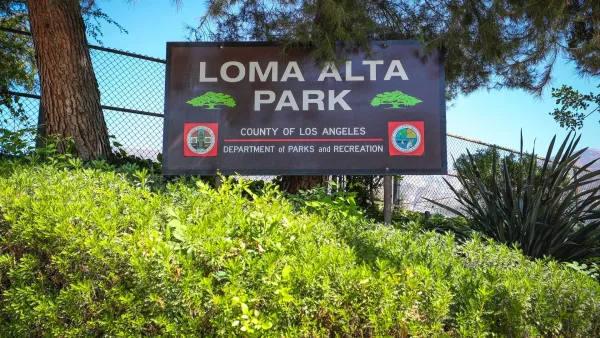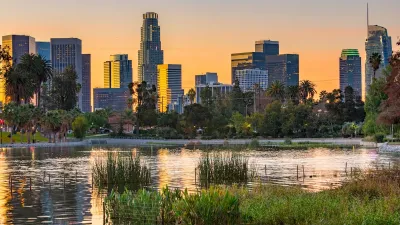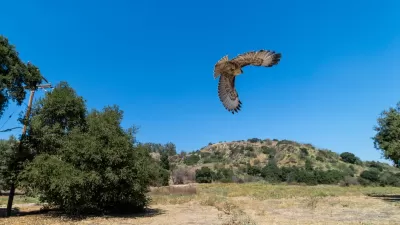A case over "who can be held responsible for polluted storm water that runs off city streets and into rivers and bays" is headed to the U.S. Supreme Court tomorrow. The court's ruling on the Los Angeles case could have far-reaching impacts.

discusses the details of the case, which "arises from a long-running dispute between Southern California environmental groups and the Los Angeles County Flood Control District over the billions of gallons of polluted water that flow into the Los Angeles and San Gabriel rivers after heavy rainfalls."
"Storm water runoff 'is the No. 1 source of pollution in the rivers and along the coastline,' and it sickens thousands of beach visitors every year, said Liz Crosson, executive director of Los Angeles Waterkeeper [a plaintiff, along with the Natural Resources Defense Council]. Advocates hoped the lawsuit would force the county and all of its municipalities to adopt stricter measures to prevent pesticides, trash, used motor oil and other chemicals from flowing into storm drains."
The case illustrates the difficulty of regulating storm water and of assigning blame for the sources of pollution, says Savage. "County officials agree storm water is polluting the rivers but disagree on who is responsible."
"Yes, there are pollutants in the water, but dozens of municipalities are upstream from there. It's a collective runoff. It doesn't point to a particular source," Gary Hildebrand, assistant deputy director of the L.A. County Flood Control District, said in an interview.
"Experts on both sides agree they have seen progress over the past two decades in limiting pollution from storm runoff, but more needs to be done. 'This is a very complex problem,' Hildebrand said. 'There is a lot more to do, and we need to do it municipality by municipality, across the watershed.'"
FULL STORY: Supreme Court wading into L.A. County storm water case

Planetizen Federal Action Tracker
A weekly monitor of how Trump’s orders and actions are impacting planners and planning in America.

Restaurant Patios Were a Pandemic Win — Why Were They so Hard to Keep?
Social distancing requirements and changes in travel patterns prompted cities to pilot new uses for street and sidewalk space. Then it got complicated.

Map: Where Senate Republicans Want to Sell Your Public Lands
For public land advocates, the Senate Republicans’ proposal to sell millions of acres of public land in the West is “the biggest fight of their careers.”

Maui's Vacation Rental Debate Turns Ugly
Verbal attacks, misinformation campaigns and fistfights plague a high-stakes debate to convert thousands of vacation rentals into long-term housing.

San Francisco Suspends Traffic Calming Amidst Record Deaths
Citing “a challenging fiscal landscape,” the city will cease the program on the heels of 42 traffic deaths, including 24 pedestrians.

California Homeless Arrests, Citations Spike After Ruling
An investigation reveals that anti-homeless actions increased up to 500% after Grants Pass v. Johnson — even in cities claiming no policy change.
Urban Design for Planners 1: Software Tools
This six-course series explores essential urban design concepts using open source software and equips planners with the tools they need to participate fully in the urban design process.
Planning for Universal Design
Learn the tools for implementing Universal Design in planning regulations.
Heyer Gruel & Associates PA
JM Goldson LLC
Custer County Colorado
City of Camden Redevelopment Agency
City of Astoria
Transportation Research & Education Center (TREC) at Portland State University
Camden Redevelopment Agency
City of Claremont
Municipality of Princeton (NJ)





























